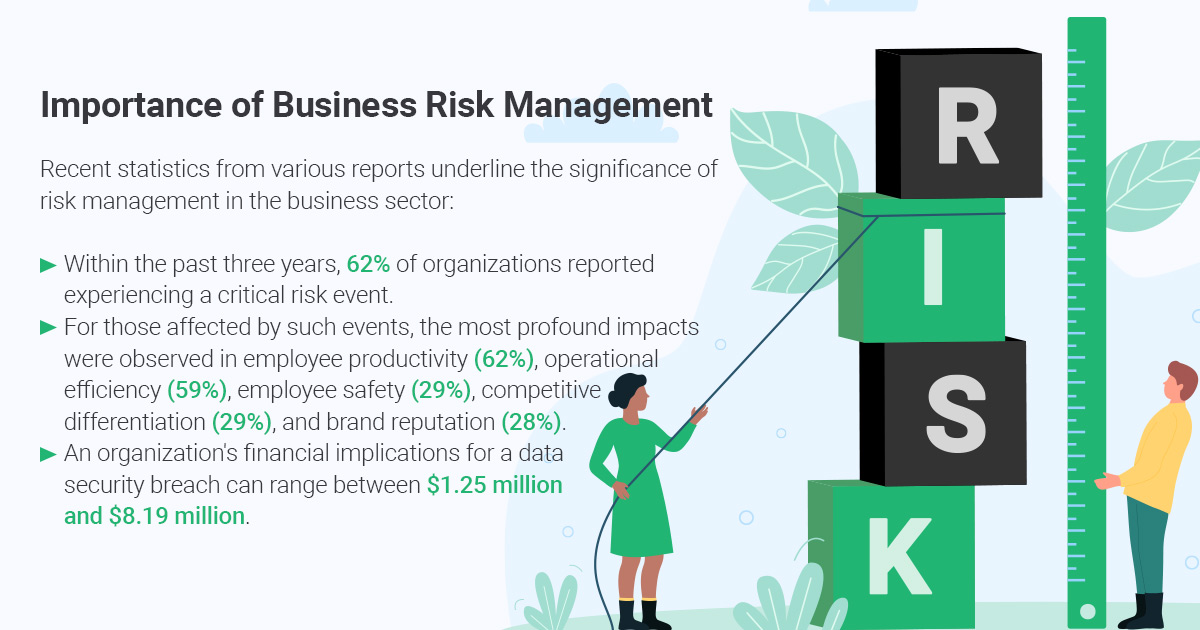Exploring the Long-Term Benefits and Importance of Risk Management for Startups
Exploring the Long-Term Benefits and Importance of Risk Management for Startups
Blog Article
The Relevance of Comprehending the Importance of Risk Management in Various Industries

The Core Concept of Risk Management and Its Function
Risk Management, the keystone of many sectors, hinges on the identification, examination, and reduction of uncertainties in a business environment. By properly recognizing prospective threats, services can create methods to either protect against these threats from taking place or lessen their impact. When threats have actually been recognized and examined, the mitigation procedure includes developing techniques to lower their potential impact.
Advantages of Carrying Out Risk Management in Organization Procedures

Unveiling the Role of Risk Management in Different Industries
While every industry confronts its distinct collection of dangers, the application of Risk Management techniques remains an usual in their quest of sustainability and development. In the medical care industry, Risk Management involves guaranteeing person safety and information protection, while in finance, it involves mitigating investment dangers and making sure regulative conformity. Eventually, the function of Risk Management across markets is to recognize, analyze, and mitigate dangers.
Real-life Instance Studies Showing Effective Risk Management
To recognize the significance of Risk Management in these several markets, one can look to a number of real-life instances that highlight the effective application of these procedures. Toyota, upload the 2011 earthquake in Japan, changed its supply chain Management to minimize disturbance risks. These cases show how industries, finding out from crises, properly used Risk Management methods to minimize future risks.
Future Patterns and Growths in Risk Management Strategies
As the world proceeds to progress, so too do the fads and growths in Risk Management techniques. Fast innovations in technology and data analytics are improving the Risk landscape. Large information and AI are now crucial in anticipating and minimizing threats. Organizations are leveraging these devices to build anticipating versions and make data-driven choices. Cybersecurity, once a peripheral worry, has catapulted to the leading edge of Risk Management, with techniques concentrating on discovery, reaction, and prevention. The assimilation of ESG (Environmental, Social, Governance) variables into Risk Management is another expanding pattern, reflecting the enhancing acknowledgment of the role that environmental and social dangers play in company sustainability. Hence, the future of Risk Management hinges on the fusion of advanced technology, innovative approaches, and explanation a holistic method.
Conclusion
To conclude, recognizing the significance of Risk Management throughout a spectrum of markets is essential for their longevity and success. Tailored approaches can help alleviate possible dangers, safeguard properties, and foster stakeholder count on. Furthermore, aggressive decision-making aids in regulative compliance and enhances source usage. Ultimately, successful Risk Management adds to extra sustainable and resistant services, highlighting the relevance of this practice in today's very affordable and dynamic service setting. useful site
While every industry confronts its one-of-a-kind collection of risks, the application of Risk Management techniques stays a common denominator in their pursuit of sustainability and growth. In the healthcare market, Risk Management requires making Home Page sure person safety and security and information security, while in finance, it involves mitigating financial investment threats and guaranteeing regulatory conformity. Ultimately, the function of Risk Management across markets is to identify, evaluate, and mitigate dangers. These cases show how sectors, finding out from dilemmas, effectively used Risk Management approaches to minimize future risks.

Report this page